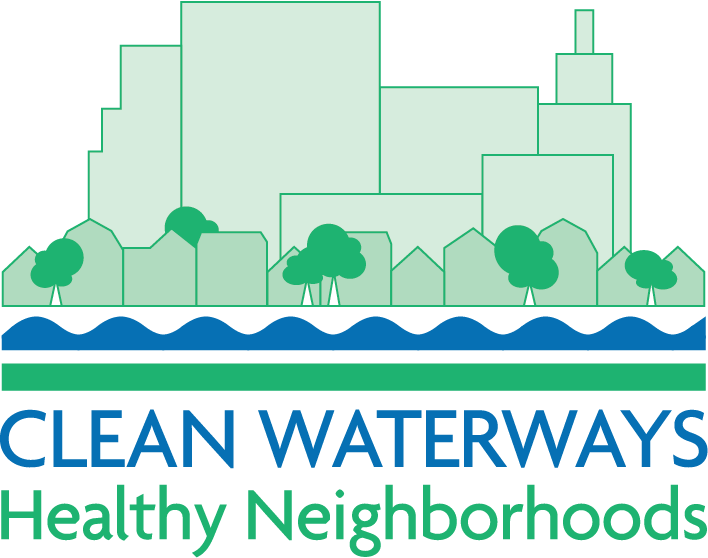October 1, 2020 was the submission deadline for all New Jersey Combined Sewer Overflow Long Term Control Plans. Click here to view the final PVSC and Guttenberg/North Bergen MUA Reports, or view them on the NJDEP website. Public input on the LTCPs was accepted by NJDEP up until January 31, 2021. Comments received by the public can be found here. Please note that certain reports included in the Appendices of the Long Term Control Plans have been previously approved by the NJDEP. However, the current Long Term Control Plan is under review by the NJDEP and, to date, has not been accepted: https://www.state.nj.us/dep/dwq/cso-ltcpsubmittals.htm
What is the Long Term Control Plan?
The Long Term Control Plan (LTCP) identifies ways to mitigate the effect of CSOs as guided by National CSO Control Policy and through the evaluation of CSO control alternatives. The Clean Waterways Healthy Neighborhoods collaboration will develop LTCPs for the PVSC and NBMUA Woodcliff POTW service areas. While the LTCPs are coordinated across these service areas, the controls will be selected at the municipal level by the individual permittees.
The LTCPs includes the following elements, as required by National CSO Control Policy and the NJPDES CSM permits:
Combined Sewer System Characterization
A comprehensive study to characterize the combined sewer system based on records review, monitoring, and modeling. For the PVSC and NBMUA service areas, flow monitoring and water quality monitoring were performed within the collection systems. Hydrologic and hydraulic models were developed and calibrated using the monitoring data. The System Characterization Reports were submitted to NJDEP prior to the July 1, 2018 deadline and can be accessed from the NJDEP website.
Public Participation
Permittees are required to actively engage the affected public throughout the LTCP process. Methods for conducting outreach can include public meetings, websites, social media, informational materials and brochures, and any other method that disseminates information or solicits public input. In addition to this website, Clean Waterways Healthy Neighborhoods maintains active Facebook and Twitter feeds and has developed a series of information materials available in several languages:
Informational Brochure
English | Spanish | Portuguese
Downspout Disconnection Fact Sheet
English | Spanish | Portuguese
Controlling CSOs with Sewer Separation
English | Spanish | Portuguese
What is Green Infrastructure
English | Spanish | Portuguese
The NJPDES CSM permits require the establishment of a Supplemental CSO Team consisting of members of the affected public to work with the permittees and act liaisons with the general public. The Clean Waterways Healthy Neighborhoods Supplemental CSO Team was formed in October 2016 and meets once per quarter at various locations around the PVSC and NBMUA service areas. Consultants, permittees, regulators, and guest speakers present on relevant topics. Members of the Supplemental CSO Team and the wider public are invited to provide input and comment on the LTCP development process.
Presentations from prior Supplemental CSO Team meetings are available to view and download.
The Public Participation Process Report was submitted to NJDEP prior to the July 1, 2018 deadline and can be accessed from the NJDEP website.
Consideration of Sensitive Areas
The National CSO Control Policy and the NJPDES CSM permits require that permittees give the highest priority to controlling CSOs that discharge to Sensitive Areas, which are defined as:
Outstanding National Resource Waters
National Marine Sanctuaries
Waters with threatened or endangered species and their habitat
Waters used for primary contact recreation
Public drinking water intakes or their designated protection areas
Shellfish beds
A single Consideration of Sensitive Areas report was developed for the entire NJCSO Group, which includes all of the permittees in northern New Jersey. The report was submitted to NJDEP prior to the July 1, 2018 deadline and can be accessed from the NJDEP website.
Evaluation of Alternatives
A wide range of technologies and alternatives will be evaluated to analyze ways to reduce the impacts of CSOs. This evaluation will consider the practical and technical feasibility of each alternative while considering adherence to regulatory compliance; cost effectiveness; ability to relieve flooding; non-monetary factors such as implementability and operational considerations; and public acceptance.
Possible CSO control alternatives include:
Green infrastructure
Increased storage
Treatment plant expansion
Inflow and infiltration reduction
Sewer separation
Satellite treatment facilities
Wet weather related bypass of the secondary treatment process at the treatment plant
The Development and Evaluation of Alternatives Report is due on July 1, 2019.
Selection and Implementation of Alternatives Report
The final piece of the Long Term Control Plan identified the selected CSO control alternatives and provide a schedule for implantation. The selection of alternatives was based on both performance and cost considerations. The Selection and Implementation of Alternatives Report was provided to NJDEP on June 1, 2020.


